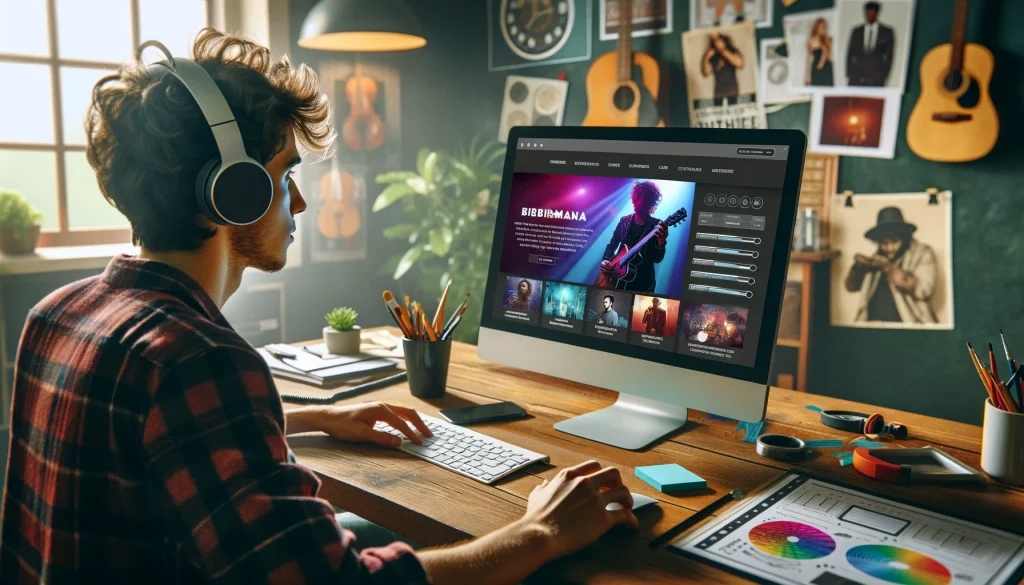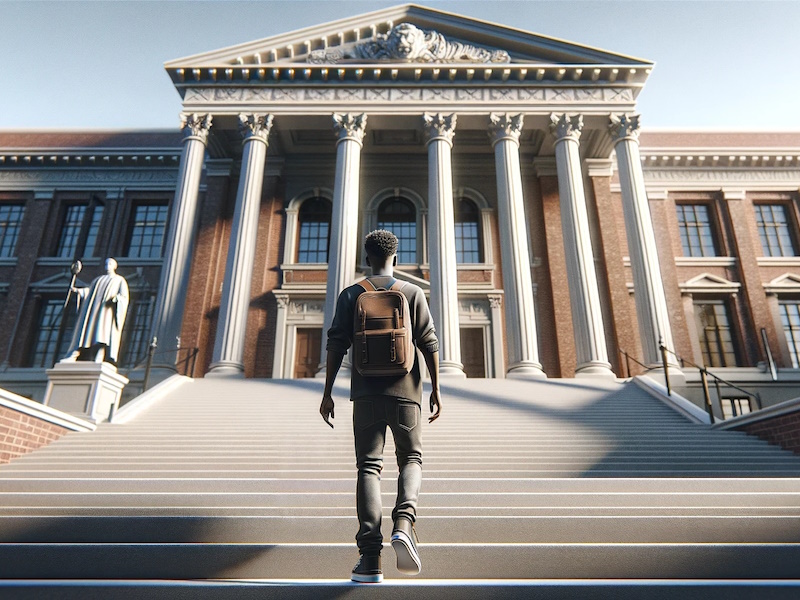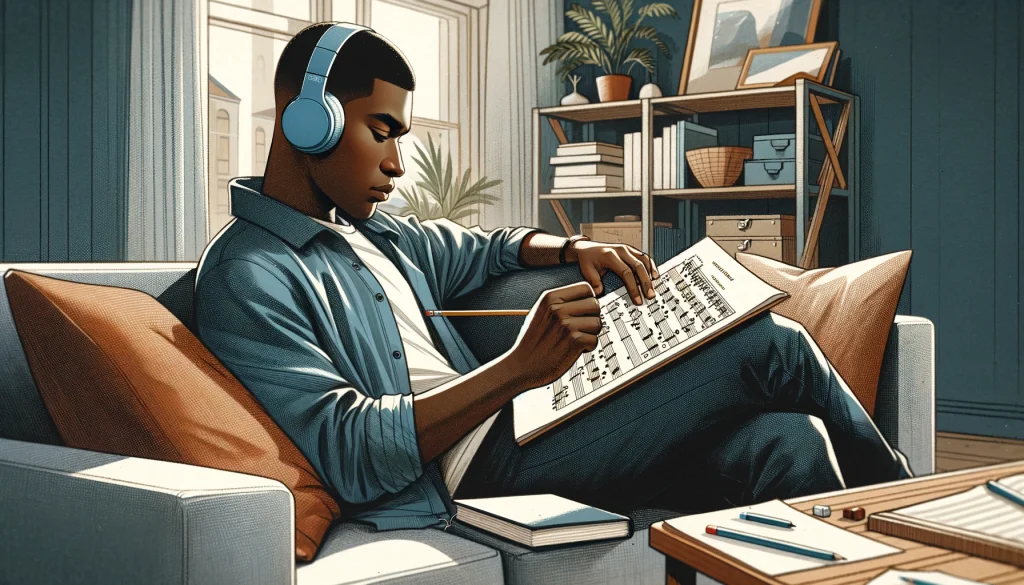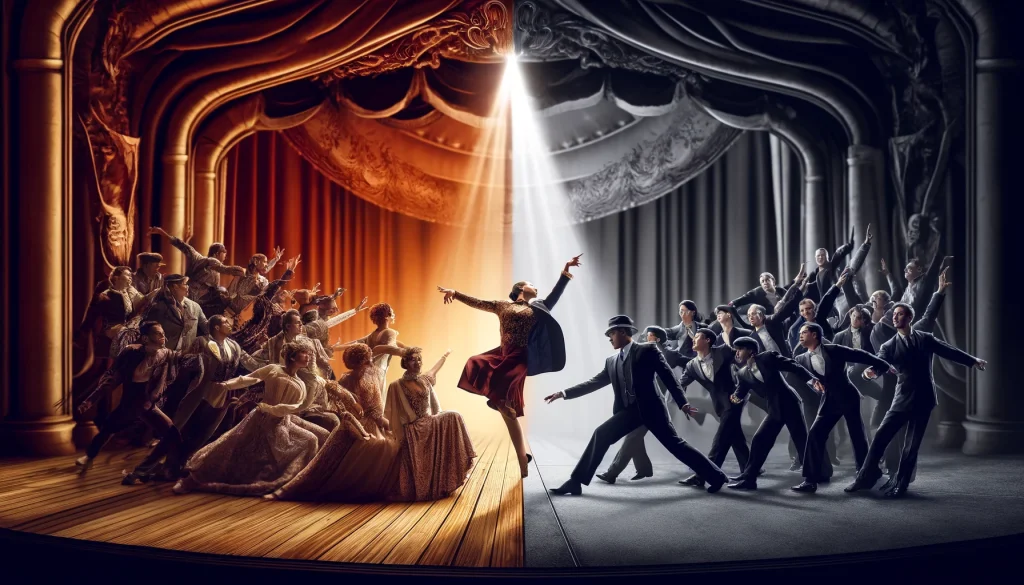While all musicians will play music by composers that are well established and often dead, many will also have the opportunity to perform new works by living composers with the composers present. While this can present some of the most exciting opportunities in music making, it also introduces certain challenges. Here are some tips on how to foster the best working relationship with composers.
General Guidelines
Overall, you should aim to be the kind of musician composers want to work with again. This means:
- Be on time.
- Be prepared.
- Be invested in the piece.
- Be quick to respond to emails, calls, and texts.
- Be good natured, calm, and easy to work with.
- Be generous; assume the best in tense interactions.
- Be dependable. Don’t back out of gigs, but if you must, see my blog on how to cancel a gig.
Consultation
Some composers consult with players on their pieces. This is a great way to foster the creation of great new music for your instrument. Try to find time to meet with composers, answer their questions, and demonstrate to them with explanations why things do or don’t work. While many musicians will do this for free, it’s perfectly acceptable to charge for this especially if it’s extensive.
Additionally, if a composer asks you if something is playable, try it on your instrument before responding. Many composers have stories of being told that things were playable when they weren’t or that they were unplayable when they were. The Polish violinist Samuel Dushkin famously told Stravinsky that a key chord in his violin concerto was unplayable, only to later discover that it could be played after all; it was just atypical.
The Rehearsal Process
Rehearse First Without the Composer: It’s usually best not to have the composer present for a first rehearsal. The musicians need time to get the piece into a working state that they can then workshop with the composer. Most composers will respect this request if you make it, and I recommend that you do if possible.
Compliment the Piece: When the composer does attend his/her first rehearsal, it’s important to recognize a bit of psychology at play. Typically, composers are worried about if the musicians like their piece, while musicians are worried about if the composer likes their interpretation (or notices their mistakes). Often, everyone is so wrapped up in their own egos, they forget to be authentically present with one another. Musicians can break through this barrier by starting off by complimenting the composer’s piece. Tell them something you like about it or compliment it generally. This helps start things off on the right foot. Composers will then be able to focus on the collaborative music making and may even be more forgiving of your mistakes. This can also get them out of their heads enough for them to return the favor and let you know how much they’re enjoying what you’re bringing to their piece.
But what if you can’t find something to like? I briefly studied with a jazz pianist as a teen and asked him what his favorite piece was. He said, “Whatever I’m playing at that moment.” While this may not have been an entirely truthful answer, it’s a great ideal. If you’re bringing a new work to life, you need to find a path toward liking it. It will make your performance stronger too.
Long Distance Rehearsals: If your composer is out of your area, (s)he may be willing to virtually attend a rehearsal through Skype.
Share Your Ideas: The composer-musician relationship is ultimately a collaborative one, so don’t hesitate to share your recommendations with the composer. This is especially true if you have ideas that are specific to your instrument (which you almost certainly know more about than the composer) rather than, for instance, suggesting different notes entirely (even notes are probably fine if you’re talking about alternate harmonies, for instance). Most composers are open and willing to hear your ideas, but give them generously and without any expectation that the composer will change his/her score.
The Performance
So you’re performing a piece of new music? Great! We composers rely on you to turn our manuscripts into actual music. But there are a few things you should do when you’re playing new music:
- Let the composer know. Composers want to be able to add your performance to their CV, their website, social media, etc.
- Prepare detailed programs. If you’re making the program, share the program notes and the composers’ bio in the program and make sure that the composer is credited properly with the title, his/her name, the names of any collaborators on the piece (if someone wrote a text, for instance), and his/her birth year.
- Provide a program to the composer. Not only do we like having these, but we’ll need them in order to register the performance with our Performance Rights Organization. This allows us to collect royalties, not from you, but from the venue (or TV or radio stations). Venues are legally required to pay these royalties, so registering a performance helps ensure that they have done so and that a portion of these funds makes its way to the composer and publisher of the piece you played. (A digital copy is fine.)
- Provide an audio recording to the composer if possible. If you can provide a live video stream or a video afterwards, great! But audio recordings are most important to composers. We use these recordings to share our works with others and apply for competitions, calls for scores, grants, etc.
Live and Studio Recording Sessions
Recordings are very important to composers. If your live performance is being recorded, here are some things you can do to help ensure the best possible recording for your composer:
- Leave a few seconds of silence before you start playing and after you stop playing. Applause may come in, but if you hold position (don’t lower your bow, instrument, hands, etc.), audiences will often hold off on applause until you relax.
- Don’t make unnecessary noise. Turning pages or moving sheets on your music stand may not seem like a big deal to you, but these things can be incredibly loud on recordings and become permanent fixtures in this recording of a piece. Try to spread your pages out in advance and minimize the sounds of turning/moving pages. If you do need to turn the page, try to do it quietly while music is playing. It’s hard to be quiet enough if it’s during a rest. Similarly, try to be quiet with pencils, moving stands, changing instruments, etc. Don’t let this make your entrance late; just be aware of it.
- Set levels first. If possible, help your sound engineer set the recording level by playing the loudest part of the piece for him/her before you record it. Be sure to play it full volume; if anything, err on the side of playing it louder than usual. This can be done in final rehearsals in the space before the performance.
If you’re recording in the studio, there are a few additional things you should do to help produce the best studio recordings:
- Start before your splice point. If you want to fix something at a given spot, start recording a few seconds before that spot. That helps ensure similar ambient sound at the moment you want to splice for the most convincing edit.
- Leave double recording time. Leave enough time to record something and do it right. In general, even superb, experienced musicians tend to estimate that they need about 50% as much time as they ideally do.
- Report your errors. If you make a mistake, make sure you tell the composer/engineer. They may not hear it when they record it, but when they go to edit it, they may be stuck with a problem they can’t fix.
- Play like it’s a performance. Many musicians fall into the trap of focusing on precision at the expense of passionate playing. We want our recordings to sound just as exciting and invested as live performances. In the sterility of the studio, it’s easy to forget that let alone sustain it through hours of takes. Do your best to keep up your energy level and play with the same vitality as if it were a live performance before a large, energetic audience.
In studio recording, here are some final tips for reducing unnecessary noise:
- When you finish a take — even a bad take — count to ten before making any noise. The composer/engineer need time for the sound to decay and to insert a fade-out. Even bad takes may have salvageable parts. And nothing ruins a great take like saying, “Yes, we got it!” the second it’s over.
- Spread out all of your pages in advance over multiple stands if necessary. You can also try to prepare your score for quiet, subtle page turns (ideally, the composer will have done this for you already, but it sometimes takes tweaking).
- Don’t audibly count, tap your foot, etc. Recording studios are very sensitive to any sound.
- Try to pull back on the loudness of breaths to cue other players.
- Just because you’re not playing, you should still bear in mind that your mic is recording and it may not be possible to mute it in the mix. If you’re not sure, ask your engineer.
- If you take one ear of your headphones off for comfort, let your engineer know. (S)he may be able to mute that ear. Otherwise, your mic may pick up extraneous sounds from your headphones (which is especially problematic if you’re working with a click track, for instance).
Money
If you commission a composer for a new work, be prepared to pay for this commission. Here’s a basic guide that can give you estimates of the cost of different commissions. That said, don’t be afraid to approach a composer to discuss a new work even if you don’t have the money. There are grants you can jointly apply for to help fund exciting collaborations like this. Also, sometimes composers are willing to bypass normal commission fees to write for musicians who are friends or whom they admire, especially if it comes with the promise of a fair few performances. Note that even when you commission a piece, the copyright is usually owned entirely by the composer. The exception to this (Work for Hire contracts) are generally avoided by professional composers except in very select parts of the music industry.
Similarly, you should expect that composers should pay you. It’s great to volunteer your time to help out fellow starving artists, but do so selectively, as your time and talent should be valued. You may also consider having reduced rates (instead of working for free) when collaborating with composers whom you like or admire. If you’re a member of your local musician’s union, they will have published rate guidelines they can provide you.
Listening to New Music
Remember that when a composer is sharing his/her music with you, (s)he is sharing something personal that took him/her a great deal of time and creative energy to create. Give it the attention it deserves.
- If they email the piece to you, listen to it a few times. New work takes longer to penetrate than familiar pieces.
- Try to find things that you like as you listen. After you listen, say a few kind words about what you liked. If they ask for feedback, try to provide some clear and constructive responses that can help them in developing the piece.
- Don’t speak during the piece. Oftentimes, listeners think they are engaging with the piece by asking questions about it while it’s playing, but many composers find this frustrating, since the listener is ultimately interrupting the piece to talk.
- Try not to show signs of boredom, like checking your watch, sighing, etc. Composers notice all of it and often think it means more than it does.
Composers generally want you to like their music. When you listen to it, if you give it your attention and a concerted effort, you can find something redeeming even in pieces you don’t like at first blush.
Final Thoughts
As a composer, I love working with great performers. I seek out performers who are reliable, enjoyable to work with, and talented. If they lack any of those three traits, I look elsewhere. Be the kind of musician that makes composers want to work with you and, better still, write new music for you. The composer-musician collaboration can be incredibly rewarding to both parties. Don’t miss out on the chance to experience it!
Oh and composers, you’re not off the hook! Stay tuned for another blog post for you about the care and feeding of musicians.
Share Your Experiences
Composers, what are some things you wished musicians knew about how to best work with you? Musicians, what are things that you’ve learned from working with composers in past? Share your thoughts with comments below.
©2016 Aaron Alon. All Rights Reserved.











0 Comments